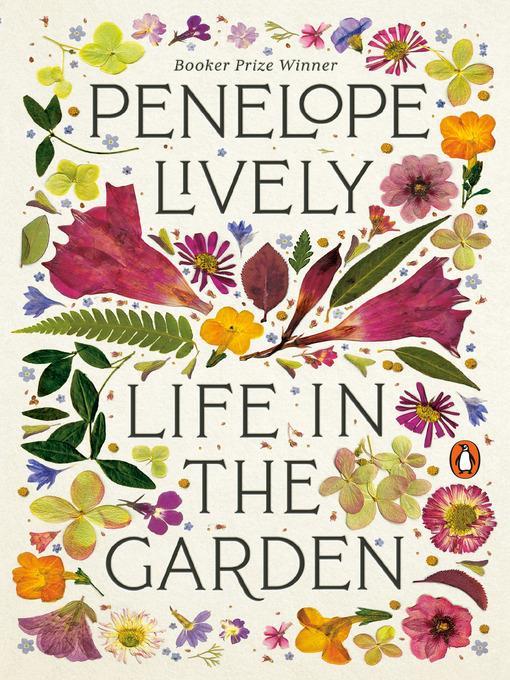
Life in the Garden
کتاب های مرتبط
- اطلاعات
- نقد و بررسی
- دیدگاه کاربران
نقد و بررسی

April 15, 2018
A memoir about how gardening sharpens the eye and buoys the spirit.In a graceful melding of memoir and reflections on literature and art, award-winning fiction and children's book author Lively (The Purple Swamp Hen and Other Stories, 2017, etc.), a fellow of the Royal Society of Literature and Dame Commander of the Order of the British Empire, celebrates the delights of planning, planting, weeding, and harvesting a garden. For her, gardening is "both formative and essential," honing "an extra way of looking about me, and an abiding and enriching engagement" with the world. The gardener, she writes, "is always noticing, appreciating, recording." Besides recounting family gardens in Cairo and Somerset, her own gardens in Oxford and London, and her exuberant trips to garden centers, Lively considers the meaning of gardens to writers such as Virginia Woolf, Edith Wharton (she admires Wharton's "delectable" and "lavish" French gardens), Willa Cather, and Laura Ingalls Wilder, who indelibly evoked the "practical, essential" importance of the pioneer garden. To Lively, Beatrix Potter's Mr. McGregor is "the archetypal gardener in literary fiction." Artists--Monet, Van Gogh, Klee, Klimt, Matisse, and Edvard Munch, among many others--were drawn to gardens as "a resource for the exploration of colour possibilities, of the evanescence of light and movement, the study of form and structure" as well as for "the expression of mood and emotion." Lively returns often to the theme of time, which gardening makes strikingly visible. "We are always gardening for a future," she observes; "we are supposing, assuming, a future." At the age of 84, she is aware that some of her current plantings "will outlast me," but they produce joy nevertheless. Gardening, she adds, "corrals time, pinning it to the seasons, to the gardening year, by summoning up the garden in the past, the garden to come." The gardener "floats free of the present, and looks forward, acquires expectations, carries next spring in the mind's eye."A gentle elegy on the "charisma" of gardens.
COPYRIGHT(2018) Kirkus Reviews, ALL RIGHTS RESERVED.

May 7, 2018
In this charming memoir, Booker Prize–winner Lively muses languidly on her life and how it has been influenced by gardens literal and imaginary. Exploring gardens in literature, Lively quotes Virginia Woolf: “The first pure joy of the garden... weeding all day to finish the beds in a queer sort of enthusiasm which made me say this is happiness.” In “The Written Garden,” Lively delights in how Elizabeth Bowen in The Little Girls “plunges the reader into a garden with ‘steamy flower-smells.’ ” Lively’s history of gardening tracks its evolution from being something enjoyed by English Victorian aristocrats through to modern middle-class window boxes in urban London, and she realizes that people’s aesthetic and communal values are reflected in how they manipulate nature: “And to garden is to impose order... the harnessing of nature to a purpose, initially practical, and later aesthetic.” Lively’s astute observations of one’s relations with nature becomes a study of how people view themselves: “We garden differently according to who we are... By their windows ye shall know them.” She clearly knows her gardening, and her exuberance on the subject will make novice gardeners long to be a part of her club. For garden enthusiasts and lovers of Romantic British literature, Lively’s narrative is like an intimate conversation with an erudite fellow gardener.

May 15, 2018
I grew up in a garden, writes Booker-winning fiction writer and memoirist Lively (The Purple Swamp Hen and Other Stories, 2017), as she looks back to her first 12 years in Egypt, where her English mother planted a large English-style garden. This curious layering of cultures underlies Lively's horticultural passion, expressed here in incisive commentary on the pitched battle between the gardener pursuing order and nature's rampancy; the contemplative, therapeutic aspect of gardening; how gardening sharpens one's sense of time; and the deep, metaphorical richness gardens evoke, from the dream of paradise to the cycles of life and death. She visits painted gardens by Monet, Bonnard, and Van Gogh, as well as diverse fictional gardens, including those conjured by Beatrix Potter, Virginia Woolf, and Edith Wharton. Lively also looks to gardens as indicators of social standing, tracks garden fashions, confesses her addiction to fuchsias, and zestfully critiques the writings of influential English garden designers, including Gertrude Jekyll and William Robinson. Erudite, witty, and irreverent, Lively darts ebulliently from topic to topic like a bee among blossoms.(Reprinted with permission of Booklist, copyright 2018, American Library Association.)

January 1, 2018
"To garden is to elide past, present, and future; it is a defiance of time." So says Booker Prize winner Lively, whose recent The Purple Swamp Hen and Other Stories was an LJ Best Short Story Collection. Recalling flowers flourishing at homes from Cairo to London, Lively uses gardening to reflect on art, literature, and life.
Copyright 2018 Library Journal, LLC Used with permission.

























دیدگاه کاربران